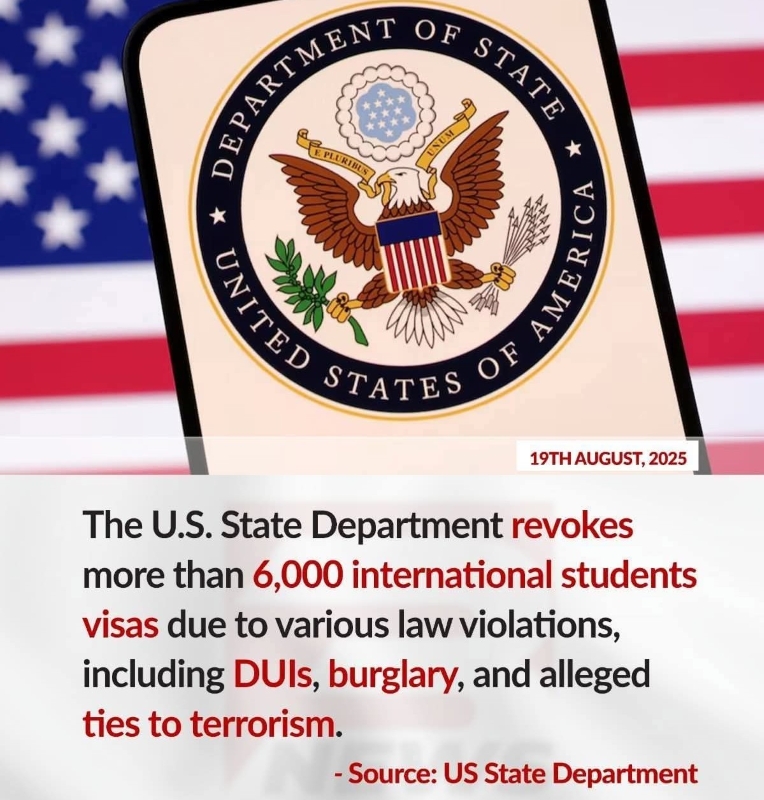There is massive uproar as the United States Department of Homeland Security revokes the visas of more than 6,000 international students studying in America.
The move, which has sparked outrage, controversy and confusion among both students and immigration advocates, has been justified by the department on the grounds of alleged criminal activity, including charges of driving under the influence (DUIs), burglary, and even suspected ties to terrorism.
This drastic action, taken without warning or due process, has thrown the lives of thousands of students into disarray.
Many of these individuals had been living in the United States for years, pursuing their education and building a future in a country that they had come to think of as their home.
The Department of Homeland Security has defended its decision by citing the need to protect national security and uphold the rule of law.
However, critics argue that the mass revocation of visas without proper investigation or individual review is a violation of due process and a devastating blow to the students who have been caught up in this sweeping action.
In addition, there are serious concerns about the accuracy and fairness of the accusations levelled against these students. Many of the crimes cited as justification for the visa revocations are relatively minor offenses, such as DUIs or low-level property crimes.
It is unclear how these infractions, which are common among young adults, particularly college students, could justify such a severe response.
According to observers, the allegations of ties to terrorism are particularly troubling, as they are often based on vague or unsubstantiated claims.

“Without proper evidence or a chance to defend themselves, these students are left in a state of limbo, facing the prospect of deportation and separation from their lives in the United States.”
The impact of this visa revocation is not only felt by the affected students themselves but also by the institutions and communities that they are a part of.
Many colleges and universities rely heavily on international students for diversity, tuition revenue, and academic excellence.
“The sudden loss of thousands of students could have serious repercussions for the schools they attend and the broader higher education system in the United States,” said Hans Kena who usually recruits Tanzanian students to study abroad
Additionally, the revocation of visas has broader implications for the reputation of the United States as a destination for international students.
The arbitrary and heavy-handed approach taken by the Department of Homeland Security sends a chilling message to the global community about the treatment of foreign nationals in this country.
It could deter future students from choosing to study in the United States and damage the country’s standing as a leader in higher education and research.
In conclusion, the mass revocation of international student visas by the United States Department of Homeland Security is a deeply concerning and unjust action that raises serious questions about due process, fairness, and the treatment of foreign nationals in this country.
It is imperative that these students be given a fair chance to defend themselves and that their cases be reviewed on an individual basis.
The United States must uphold its values of justice and equality in dealing with this situation and ensure that international students are treated with the respect and dignity they deserve.

